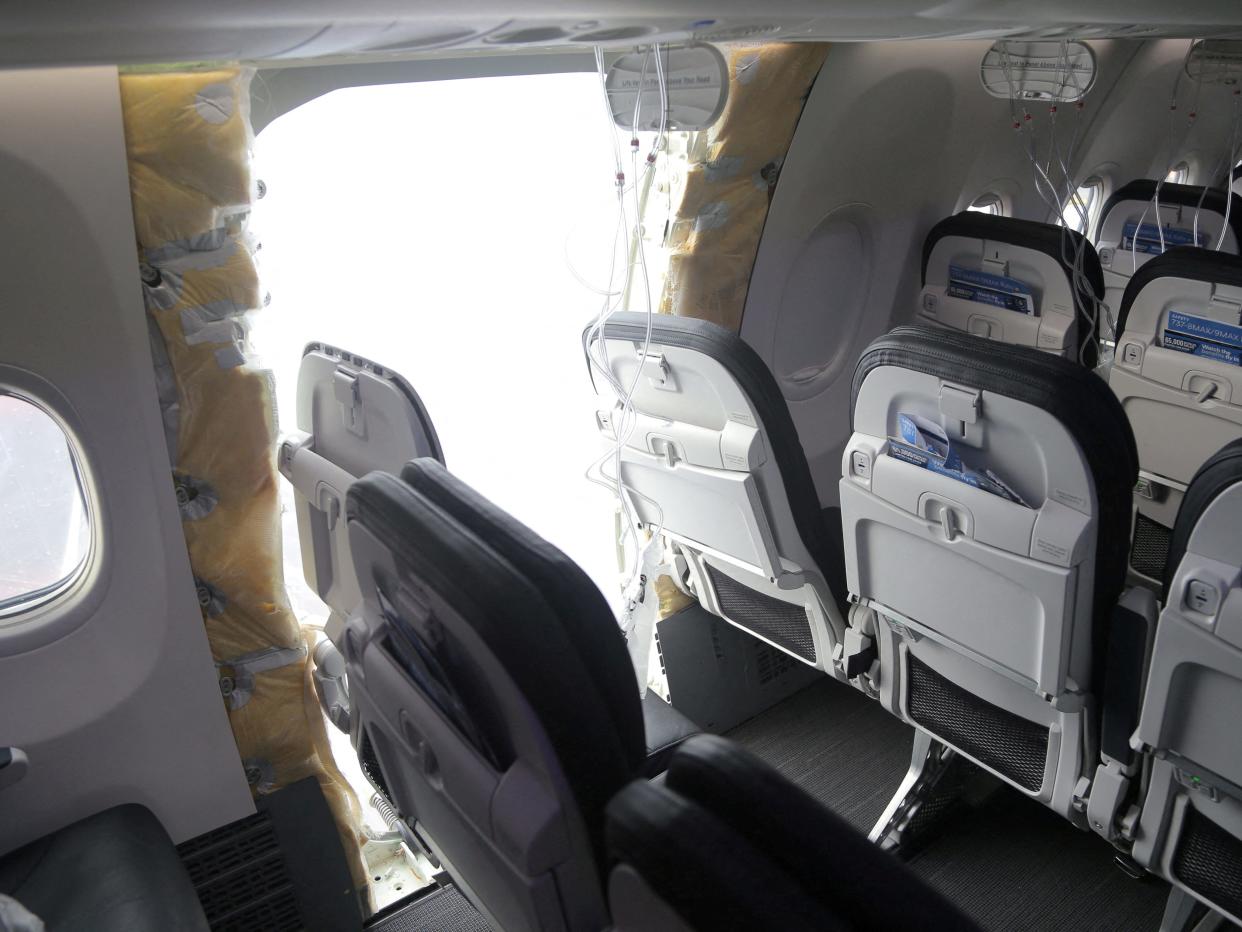Boeing agreed to plead guilty to a fraud-conspiracy charge over the 737 Max saga, but it isn't out of the woods just yet

Boeing agreed to plead guilty to one count of conspiracy to defraud the US.
Its government contracts, worth 37% of last year's revenue, could be in jeopardy.
Boeing faces other investigations and lawsuits from Alaska Airlines passengers.
Boeing has agreed to plead guilty to one count of conspiracy to defraud the US, the Justice Department said in a Sunday court filing.
The department said Boeing violated a 2021 deferred-prosecution agreement, reached after 346 people died in two 737 Max crashes in 2018 and 2019.
Boeing had to pay $2.5 billion — mostly to the victims' families — and agreed to strengthen its compliance program.
The DPA was due to expire two days after January's Alaska Airlines blowout. In May, the Justice Department said Boeing had failed to "design, implement, and enforce a compliance and ethics program."
The filing says that under the plea deal, Boeing will pay an additional fine of $243.6 million, the same criminal penalty it paid in 2021. It has also been ordered to invest at least $455 million in its compliance and safety programs and install an independent monitor.
The filing says the court will determine the restitution to be paid to the families of the victims of the 2018 and 2019 crashes.
But it's not the end of the fallout just yet.
Paul Cassell, an attorney for some of those families, slammed the plea deal and called on the judge to reject it.
"This sweetheart deal fails to recognize that because of Boeing's conspiracy, 346 people died," he said in a statement. "A judge can reject a plea deal that is not in the public interest, and this deceptive and generous deal is clearly not in the public interest."
Government contracts
By pleading guilty, Boeing will agree it committed a felony — jeopardizing its government contracts.
The company's latest annual report said 37% of its revenue came from government contracts.
They are primarily in the defense and space sectors, which have been a saving grace for Boeing as its commercial-airplanes division has suffered from January's blowout. Without them, Boeing's stock price might have fallen even further than the 26% it has dropped since the start of the year.
But each government agency has been left to decide whether to continue business with Boeing. As such a valued firm, it seems unlikely to suffer much here.
In a Senate hearing last month about Boeing's safety culture, Sen. Richard Blumenthal argued that Boeing "needs to succeed for the sake of the jobs it provides, for the sake of local economies it supports, for the sake of the American traveling public, for the sake of our military."
Then there are other investigations Boeing is facing.
In March, The Wall Street Journal reported that the Justice Department had opened an investigation into Boeing following the Alaska Airlines blowout, in tandem with the review of the DPA.
Later that month, the FBI told passengers of Alaska Airlines Flight 1282 that it had identified them "as a possible victim of a crime."
Numerous passengers are also suing Boeing in relation to the blowout.
In short, Boeing's headache looks set to continue. Regaining the trust of regulators and customers is likely to prove difficult for its next CEO.
Read the original article on Business Insider

